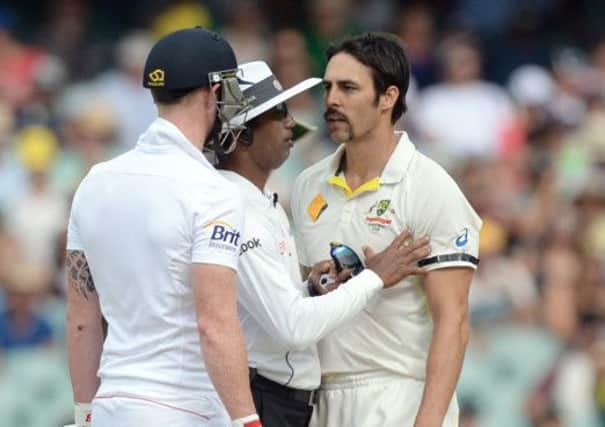Chris Waters: Lessons still not learned by death of Hughes


Eoin Morgan’s men take on Australia in Sydney desperately searching for a formula they hope can carry them to glory in the global competition.
It will be a tall order – there could be more chance of finding a formula to cure the common cold – and not many expect England to shake too many branches let alone pull up any trees.
Advertisement
Hide AdAdvertisement
Hide AdHowever, on the basis that sport is nothing if not unpredictable, hope springs eternal – as it invariably does whenever England send a sports team to compete in any World Cup tournament, despite the overwhelming likelihood of looming disappointment.
What is entirely predictable, however, is that amid all the “thrills and spills” set to come our way in the next few weeks, the games will be played to a backdrop of naked aggression.
While the little kiddies in the crowd excitedly wave their 4s and 6s cards to celebrate boundaries, you can bet your bottom dollar that the players will be tearing strips off each other in a verbal sense, interspersed with the occasional threatening gesture.
Bouncers will be followed with barrages of abuse, bowlers will scream in self-indulgent triumph in the faces of dismissed batsmen, and the umpires will feel like supply teachers dealing with classrooms of trouble-makers.
Advertisement
Hide AdAdvertisement
Hide AdAnd when the whole shebang comes to an end sometime in March, we can look forward to more of the same in the Ashes this summer.
Which brings me around to Jonathan Agnew.
The BBC cricket correspondent has been criticised for having had the temerity to suggest that Australia missed a chance to clean up their act on the field in the recent Test series against India and set an example following the tragic death of Phillip Hughes.
Agnew referred to the moving speech made by Michael Clarke at Hughes’s funeral when the Australia captain said: “Phillip’s spirit, which is now part of our game forever, will act as a custodian of the sport we all love. We must listen to it. We must cherish it. We must learn from it.”
Agnew hoped it would herald a new age of sportsmanship.
Instead, the Australia-India series was blighted with the usual gratuitous verbals, handbags-type square-ups and ridiculous send-offs from bowlers.
Advertisement
Hide AdAdvertisement
Hide AdThe Indians were just as bad, led by the perennially antagonistic Virat Kohli, a brilliant batsman but the sort of fellow who could probably start a fight in an empty pavilion once he had finished admiring himself in the dressing room mirror.
Practically the only concession to sportsmanship was when Kohli was hit on the helmet by a Johnson bouncer, kindling memories of Hughes’s tragic demise, but even that had a rather pathetic quality as the demonic, oath-spewing fast bowler suddenly turned into an Australian version of Florence Nightingale before rapidly reverting to type.
But as Agnew made clear in an interview with the Radio Times: “Michael Clarke said very clearly that Hughes’s memory would run through the team, and would be in the way they would play their cricket. Well, I haven’t seen evidence of that.
“I really hoped that out of this tragedy might have come some good. But the players haven’t behaved any better, and I think that’s a real disappointment.”
Not everyone agrees.
Advertisement
Hide AdAdvertisement
Hide AdChris Rogers, the Australian opener, denied his side had crossed the line, saying, “Everyone is desperate to win and sometimes these things happen”, while former England one-day captain Adam Hollioake scoffed, “I understand there are some people who see cricket as a gentleman’s game”.
Of course, there will always be incidents in the heat of battle, but the idea that playing the game hard has got anything to do with more than batting, bowling and fielding is a concept too many cricketers do not understand.
Like Premier League footballers pre-programmed to surround referees, they are conditioned in a way of behaviour that is so central to individual and team identity that to challenge it – as Agnew has done – is unthinkable.
Sadly, the only conclusion to be drawn is that the true spirit of cricket died long before Hughes.